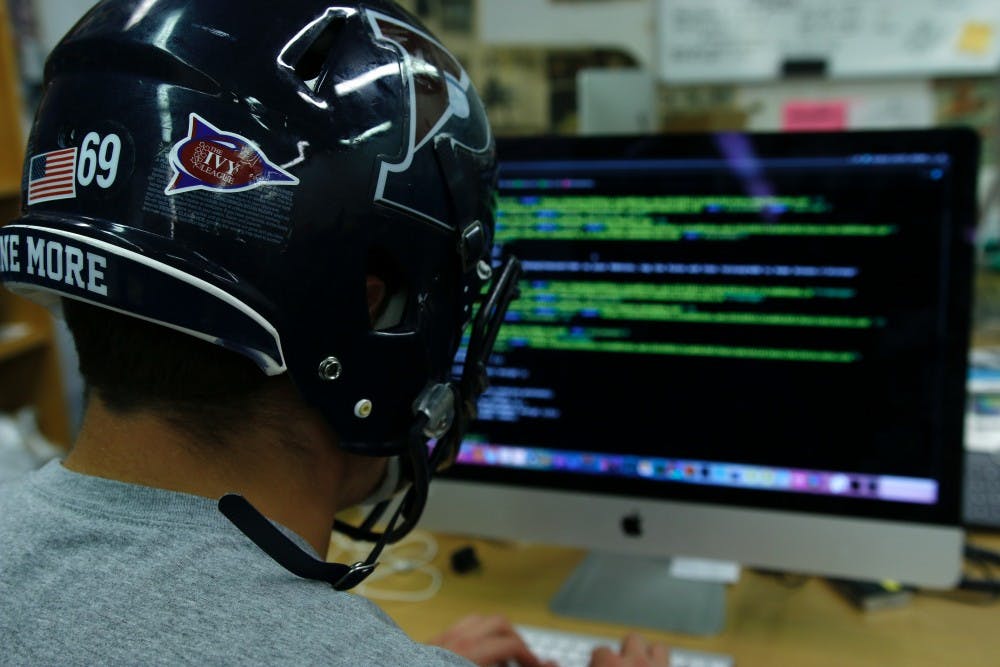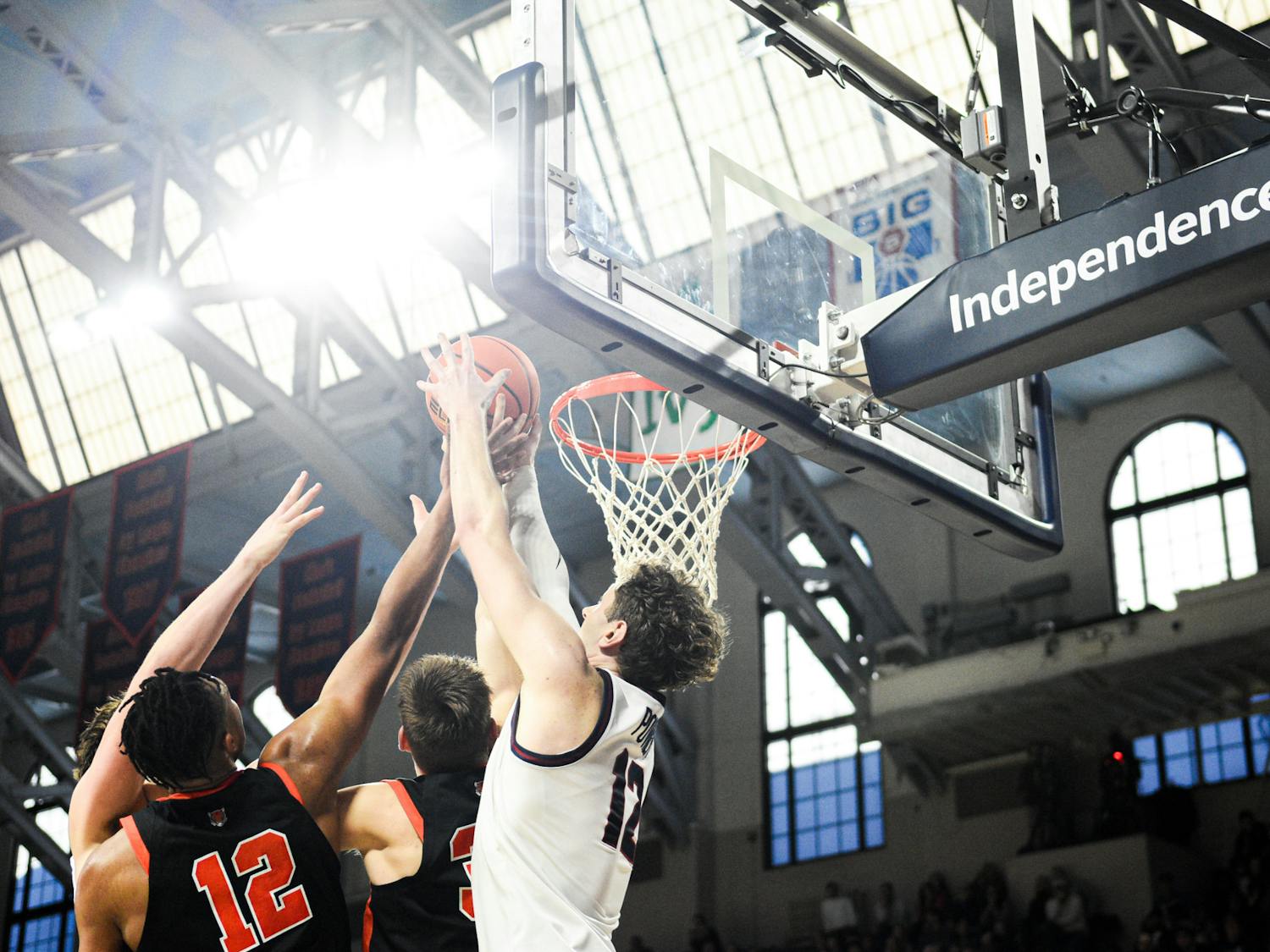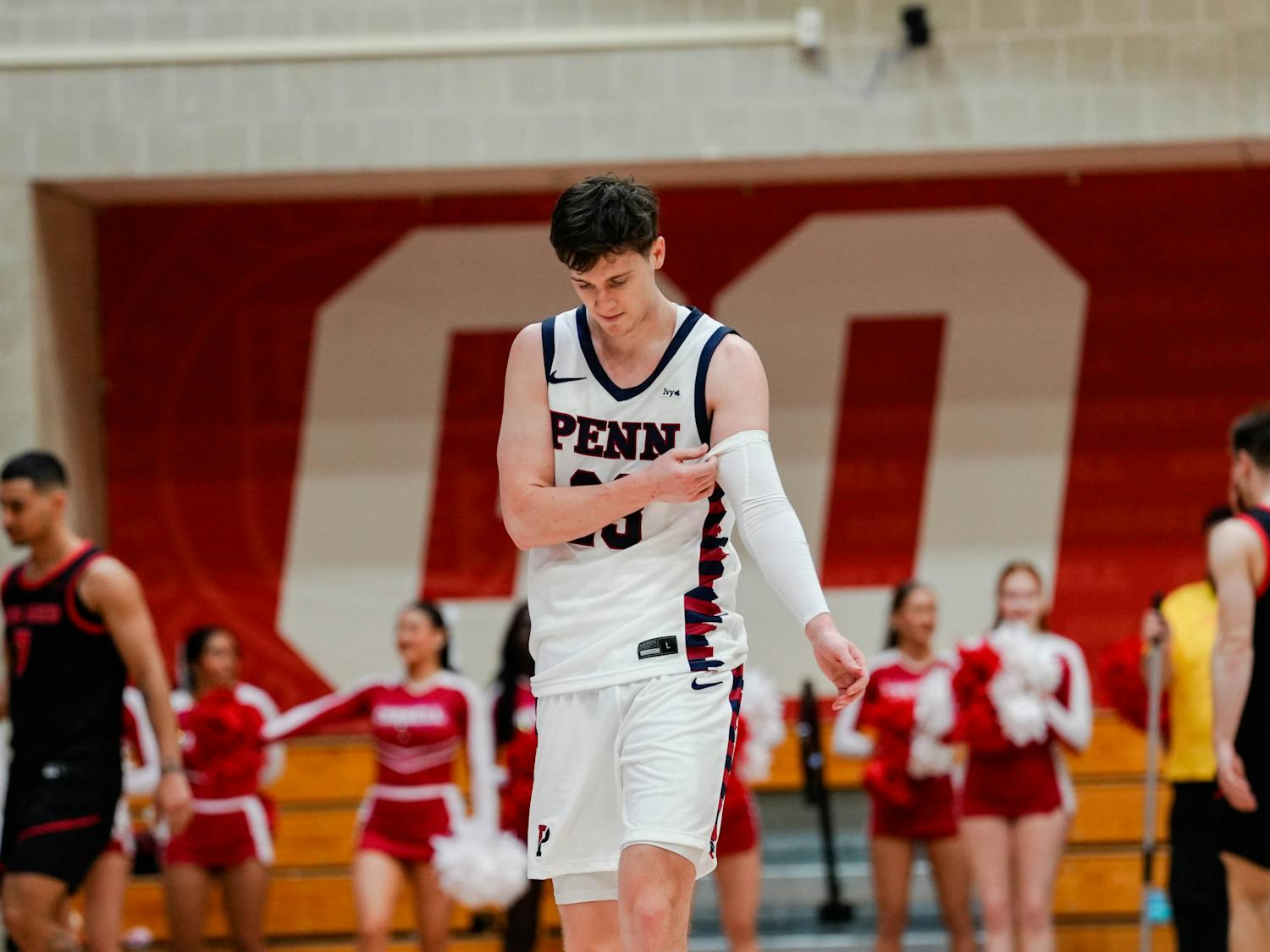“Engineering’s really fun and cool, but if you’re going to play a sport with it, you’re just not going to sleep most of the time and you’re going to feel crappy a lot of the time.”
The life of a college athlete — like men’s tennis’ Dan Harris — is hectic.
Between playing almost every day and keeping up with classwork, student-athletes are constantly spreading themselves thin.
The thought of having to perform this balancing act is enough to make any confident time-manager quake in his or her boots; however, there is one subset of student-athletes that have a particularly difficult run of things. They are the minority — or maybe you just never see them because they are tucked away on the east end of campus coding into the waning hours of the morning. They are the engineer-athletes.
Attempting to manage the added stress of the engineering curriculum while still performing at a high level athletically is a challenge that a select few Penn students are tasked with every day.
“For the general requirements it’s already pretty tough to keep up,” said Harris, who is a mechanical engineering major. “But for some classes, like the mechatronics class I’m taking now, it’s near-impossible.”
Junior volleyball player and computer science major Sydney Morton agrees that the coursework in engineering makes for a particularly rigorous schedule, but points out that there are valuable lessons in time management that it has taught her.
“Of course it’s a lot, I knew it would be,” Morton said. “But I definitely think I’ve improved my time management. After practice, I often go off and study and code for hours. I also work most of the day on my days off, like Sundays.”
Nick Demes, a senior football player and mechanical engineering major, agrees with Morton on the importance of time management.
“You really just have to set aside time every week just for school,” Demes said. “For me, that’s Sunday into Monday. That’s my day to grind every week.”
Most engineer-athletes know what they are getting into from the moment they enroll to Penn, but even the most prepared have to tweak some habits once the stress starts to mount.
“I really started appreciating the value of sleep,” Morton said. “I manage my time to make sure I get in the right number of hours to keep me functioning at a high level, both academically and athletically.”
Harris also tries to manage his time, but for him, that means taking advantage of every waking free moment.
“If I have a free five minutes, that’s five minutes to hunker down,” Harris said. “We don’t have a lot of free time to eat, so a lot of times I will eat and work at the same time.”
The forgotten factor in the midst of all the strain is the coaches and teammates of the engineer-athletes, the ones who get to see firsthand how difficult life can be for these students.
Particularly with the regimented nature of the engineering program, there’s often little flexibility which classes need to be taken — and
“My coaches are unbelievably understanding,” Morton said. “One of my classes this semester is actually in the middle of practice. I go to practice, leave to go to class, and then come back to catch the end.”
Whatever the negatives of having such a stringent calendar are, there are equally as many positives. Engineers who play sports have the luxury of applying the valuable lessons learned on the field to the classroom, or vice versa.
“In engineering, it’s a lot of problem solving,” Harris said. “On the court, I address a lot of situations like a problem that needs a specific solution. By doing this I can break down my game and my opponents.”
“For me, it’s definitely the work ethic that I teach myself on the practice field that translates into my studies,” Demes added. “We have a limited time to prepare for the weekend’s game during the week, and in the same way, there’s limited time outside of practice for me to get my work done. I know how strict I have to be with myself.”
In the end, athletes who decide to delve into engineering clearly have a tough mountain to climb from the second they step foot in University City.
These athletes are the model for time management, perseverance and dedication to the sport they love.
“It’s what has to happen,” Demes said.
“I wouldn’t do it if I didn’t love it.”









